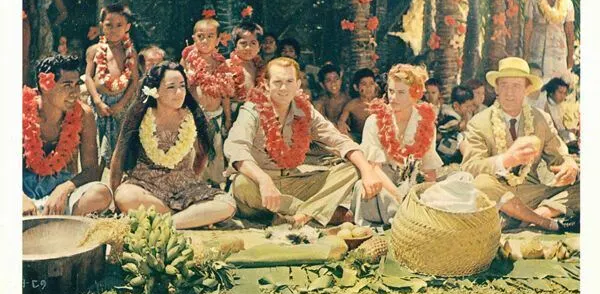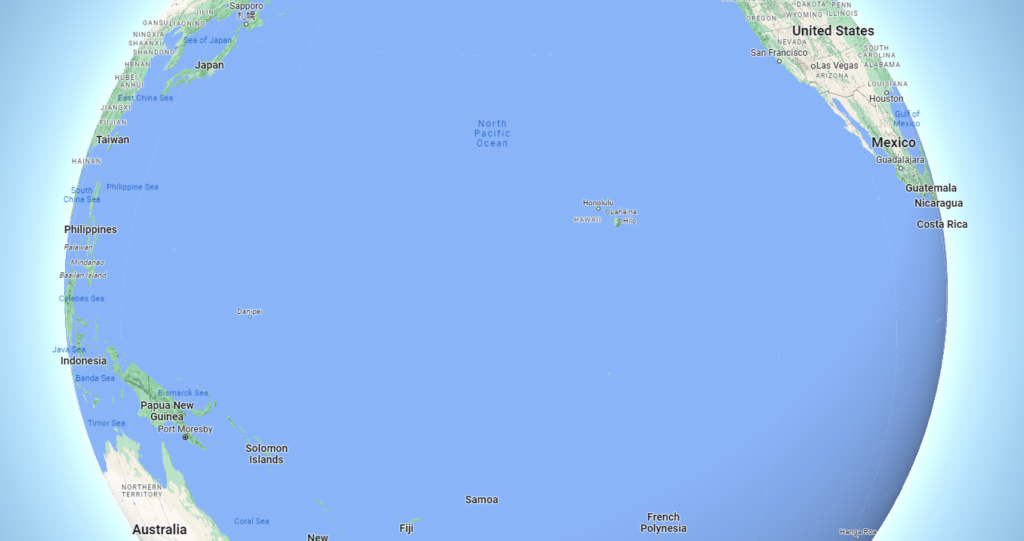About
Author: Arthur Grimble (Kiribati)
Genre: Narrative Non-fiction
Setting
Place: Gilbert & Ellice Islands (Kiribati)
Time: 1890s
My Rating (see what this means)
My Subjective Rating: 3
My ‘Objective’ Rating: 2.62
Introduction

Colonialism is an outdated idea. It wouldn’t be a stretch to caricature a colonial officer as racist, exploitative and hypocritical. However, ‘A Pattern of Islands’ – memoirs of a colonial officer still makes for a worthy read for 3 reasons –
- It is among the very limited selection of books available for Kiribati history and society
- Arthur Grimble – the colonial narrator of the book defies the simplistic caricature of a colonial officer – he not only grew to love the island culture himself, but was also accepted into it
- Kiribati, while exploited, avoided the worst accesses of colonialism, courtesy distance and limited resources. This made the relations between the locals and colonial officers less hostile.
All this makes the book a reliable guide for Kiribati society and a generally enjoyable read.
Synopsis
Grimble, a man of average capabilities and a likeable personality, narrates his experiences as a cadet and subsequent Resident Commissioner of the Gilbert and Ellice Islands (present day Kiribati & Tuvalu). This book covers the first 6 years of his tenure from 1914-1920, with Grimble trying to find his feet in the new job.
The book is full of exciting anecdotes (being used as live bait for a giant octopus certainly counts as one), local myths and superstitions, politics as well as interesting personalities.

Review

Overall, the book makes for a pleasant read, thanks to the disarming narrator with a self-deprecating sense of humor. The books core strengths is its coverage of islander experiences which range from:
- the mundane (fishing, cricket, failed dinners), to the
- outrageous (performing an amputation without morphine, lunch with a judge and a criminal) to the
- outright bizarre (curses, ghosts, spirits).
We get insightful comparisons between local paganism and the newly arrived Christianity, between colonialism in Polynesia vs. Melanesia or Africa. We also meet a fascinating cast of characters – local and colonial – locals who want to be put in prison, a colonial officer who effectively functioned as a dictator, or a catholic priest who longs to return to France but cannot. Moreover, the writing itself is also very beautiful –
A sweet old lady she was, he always finished up, a sweet old lady. She must have been, in her fashion, for the memory of her still tugs somehow at my heart; but she had not been designed for the comfort of landlubbers like us, nor had her business occasions sweetened the smell of her for our kind of noses. She reeked of dead shark, putrid oyster and rancid copra from stem to stern of her aged body, and the ruinous wooden hutch on the forward well – deck where we tried to sleep was undoubtedly the chief concentrating – point of all her odours. Then, too, there were the cockroaches.
But the book has some all too apparent flaws that are difficult to ignore
- The missing voices:
Arthur Grimble remained of the view that Colonialism’s net effect was positive. But often there were situations, say a conflict between the islanders and colonial administrators regarding taxes, were we can’t help but wonder whether the islanders would take the same view of the simplistic solution Grimble is convinced would have prevented rioting.
- The missing problems:
An inattentive reader might easily form a very romantic view of life on the islands. Some glaring shortcomings of the society seem to get mere passing references while the narrator is busy elaborating some relatively meaningless anecdote
‘In those days,’ she continued, ‘death was on the right hand and on the left. If we wandered north, we were killed or raped. If we wandered south, we were killed or raped. If we returned alive from walking abroad, our husbands themselves killed us, for they said we had gone forth seeking to be raped.
- Rationality vs. Magic:
A superstitious people have no shortage of magically events happening in their lives. Grimble claimed to be a rationalist and was always trying to explain away the sighting of a dead man’s ghost or a curse that seemed to have worked. But the facts that the readers get to know and the writer’s rationalization never felt convincing enough. As a rationalist myself, I can only wonder the veracity of these stories. They nonetheless remain fun to read.
- Pace & structure:
The book in the latter half start to feel long and droning – driven primarily by the directionless-ness of the whole story. It seemed caught in anecdotes after anecdotes with no end in sight.
The Perfect Ending
On his first vacation back to England, the reader along with the narrator gets to process the 6 consequential years through the perspective of distant observer. This makes for a very wryly satisfying ending – which can easily make us forget about the book’s shortcomings.

Picture Credits:
1. https://www.kiribatitourism.gov.ki/islands-to-explore/tabiteuea-island/tabiteuea/
2. https://www.thoughtco.com/colonial-india-in-cartoons-195499
3. https://www.sportdiver.com/4-best-places-to-dive-with-cephalopods
4. Pacific Destiny movie poster